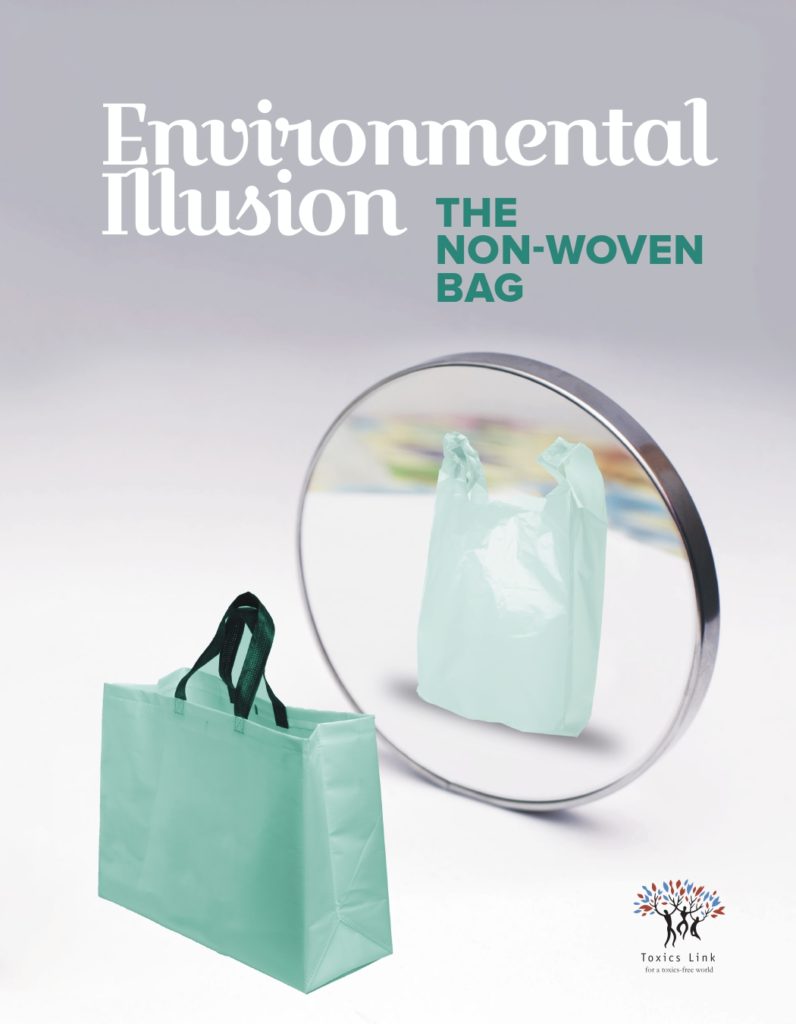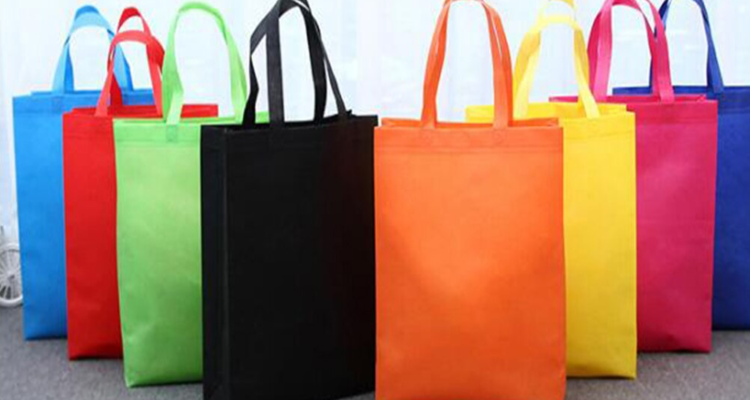A new study reveals that 45% of retail shops that stopped using plastic bags are now using non-woven bags—which are another form of plastic (but look like cloth)!
◊ By Pure & Eco India
Visit ORGANIC SHOP by Pure & Eco India
A new study titled ‘Environmental Illusion – The Non-Woven Bag’ released on September 10, 2020, by Delhi-based advocacy organisation, Toxics Link, busts the myth that non-woven (NW) bags are an eco-friendly alternative to plastic bags and reveals that they are nothing but polypropylene (a form of plastic) thereby, emphasising the dire need to inform and educate consumers about these fake cloth bags.

The study indicates that 88% of those surveyed have replaced plastic bags with eco-friendly alternatives, while 45% have replaced plastic bags with non-woven bags.
Strangely, all markets where single-use plastic is banned are being flooded with these insidious NW bags, tricking consumers into believing they’re being eco-conscious.
The survey was conducted amongst different retailers and vendors in New Delhi to assess the usage of plastic bags and its alternatives and looked at different types of establishments to understand if plastic bags are still widely.
Clearly, the lack of correct information or misleading information is leading most vendors to use plastic (non-woven PP) as replacement for regular plastic.
Five samples of non-woven bags were sent to a lab based in New Delhi, wherein polypropylene and polyester (both are plastic resins) were found in them.
Thus, the test results confirm that consumers are being hoodwinked and made to believe that NW carry bags, which have a cloth-like appearance, are biodegradable—in fact they are as dangerous as plastic, which takes a 1,000 years to decompose.
“The lower price of non-woven bags, compared to most other alternatives, is one big reason that establishments prefer to hand these out. Although the study was conducted in Delhi, secondary research suggests that non-woven bags are used widely pan-India and the issue is not unique to the capital. Since the materials used to make non-woven bags are plastic, these bags pose an equal threat to the environment as plastic bags and are just as toxic,” says Priti M, Chief Programme Coordinator of Toxics Link.
At the national level, Plastic Waste Management Rules 2016 have been enacted, wherein the minimum thickness of the bags which can be used is 50 microns.
There have been also stricter regulations at the state level with some states banning plastic bags entirely and some restricting their usage in ecologically sensitive areas.
Maharashtra, Tamil Nadu and Karnataka have banned use of non-woven bags in the overall plastic ban regulation.
But the industry continues to assert that NWPP (non-woven polypropylene) bags are the best alternative to polythene or regular plastic bags, citing their durability and also claiming that they are environment-friendly.
Some industry players claim that these bags are biodegradable. Though some local and regional government agencies have explicitly admitted that NWPP bags are not the right choice, there is still lack of clarity on the issue.
Clearly, the regulators have not come out with any clarification and advice to consumers, let alone stopping the use and dissemination of such bags.
“Regulatory agencies have a huge role to play in including non-woven bags containing plastic resins, in the list of banned or restricted plastic bags, as done by few states already.
But there is a huge need to educate establishments, who at times have voluntarily shifted to non-woven bags as a measure to be environment-friendly,” says Satish Sinha, Associate Director, Toxics Link.
TOXIC FINDINGS ABOUT NON-WOVEN BAGS
- The study establishes that NW bags are also plastic bags and cannot be used as ‘eco-friendly’ alternatives.
- 45% of the respondents have replaced plastic bags with non-woven bags.
- Secondary research suggests that NW is used widely all over the country.
- Rampant use of NW bags as an eco-friendly alternative has been found among vegetables and fruit cooperatives.
- The common misconception among consumers is that NW bags are biodegradable and eco-friendly. Of those surveyed, 46% of the respondents were of the opinion that non-woven bags will biodegrade.
- Strict enforcement on ground is needed to ensure reduction and eventual elimination of NWPP bags.
ALSO READ:



Can you give me more info on non woven bag? Is there any research or any material you can give by which we proof the non woven bags are non biodegradable and it harms nature.
If you have please share ASAP